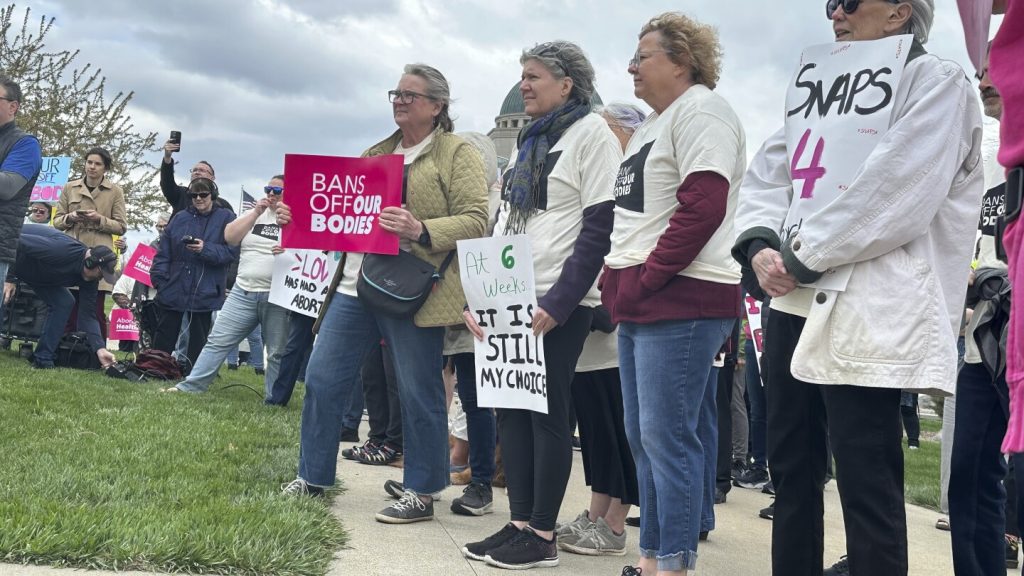Iowa is seeking to have its blocked abortion law go into effect and be upheld by the state Supreme Court, arguing that it does not infringe on women’s rights to bodily autonomy. The law, which bans most abortions after about six weeks of pregnancy, was passed with exclusively Republican support during a special session. Abortion remains legal in Iowa up to 20 weeks of pregnancy while the new law is on hold due to a legal challenge filed by the ACLU of Iowa, Planned Parenthood North Central States, and the Emma Goldman Clinic.
Following the U.S. Supreme Court decision to overturn Roe v. Wade, many Republican-led states have implemented strict abortion laws, with 14 states having near total bans on abortions at all stages of pregnancy. Iowa’s Supreme Court is set to issue a decision on the constitutionality of the state’s abortion law by the end of its term in June. The court has yet to determine whether earlier rulings applying an “undue burden test” for abortion laws are still in effect. Planned Parenthood attorney Peter Im has emphasized the importance of the court in protecting individual rights and bodily autonomy.
The state is arguing that the abortion law should be analyzed using rational basis review, the lowest level of scrutiny for legal challenges. Eric Wessan, representing the state, emphasized the need for the court to definitively establish the standard for assessing the law after years of litigation. The court could potentially end the temporary pause on the law without ruling on its constitutionality, instead sending the case back to lower courts for further arguments. Iowa Governor Kim Reynolds previously called lawmakers back to Des Moines after a previous law was blocked by the Supreme Court and remains on hold. The full court is now hearing arguments on the current abortion law.
During the hearing, Wessan referenced a prior Iowa Supreme Court decision that indicated there is no “fundamental right” to abortion in the state constitution. The law allows for abortions after six weeks of pregnancy in limited circumstances, such as in cases of rape, incest, fetal abnormalities, or if the pregnancy endangers the woman’s life. The state’s medical board has defined rules for doctors to adhere to the law. The court is expected to issue a decision on the law by the end of its term, but the final resolution of the issue may still be pending.
Overall, the legal battle over abortion restrictions in Iowa continues to unfold, with the state Supreme Court set to determine the fate of the controversial abortion law. The outcome of the case could have significant implications for women’s reproductive rights in Iowa and beyond. The court’s decision on the constitutionality of the law and the standard for assessing it will have far-reaching consequences, impacting the availability of abortions in the state. As the legal battle progresses, stakeholders on both sides of the issue are closely watching the developments in Iowa’s Supreme Court.


